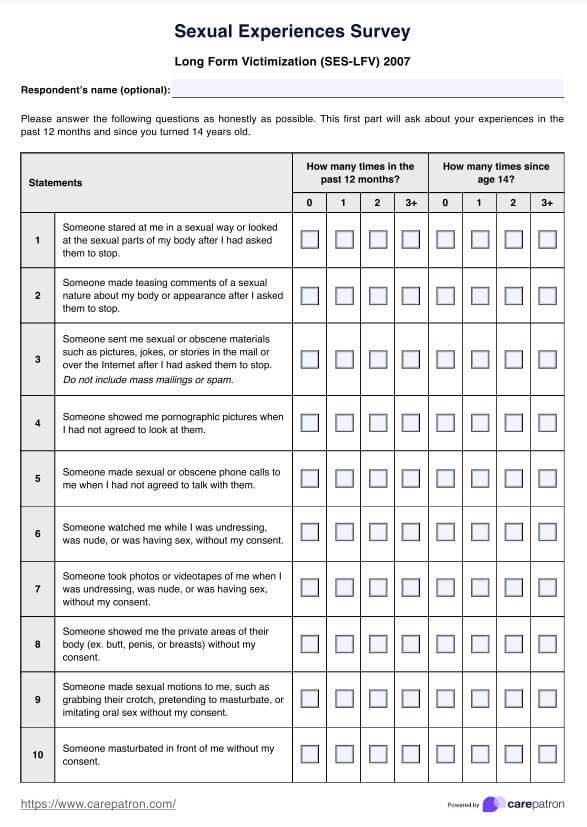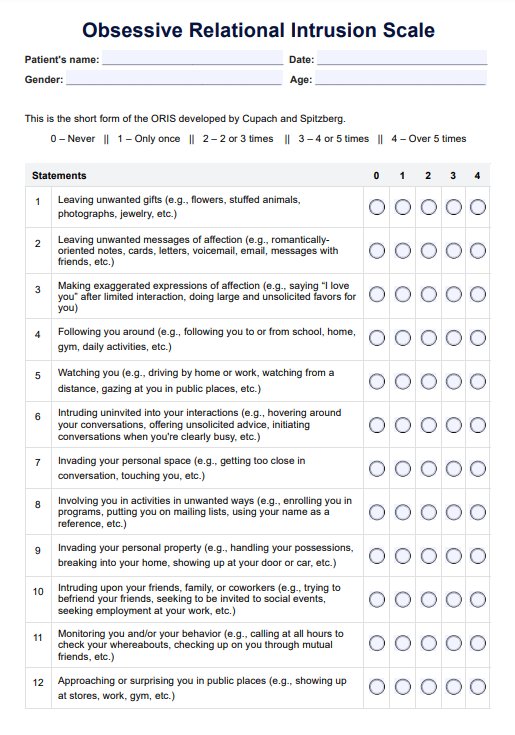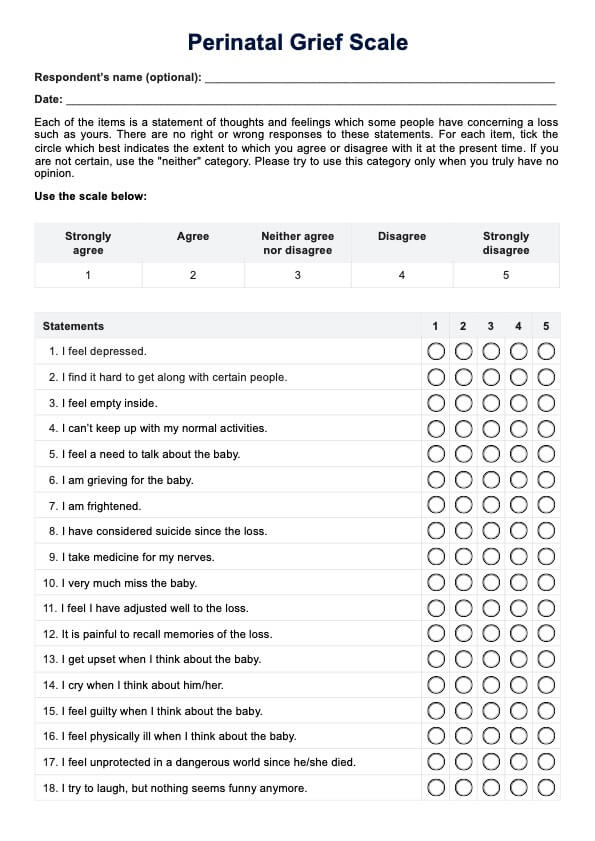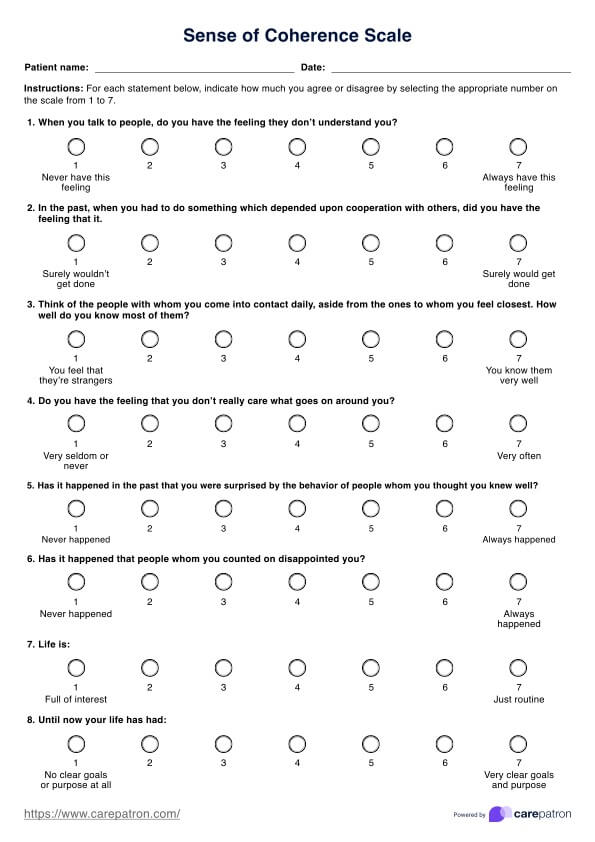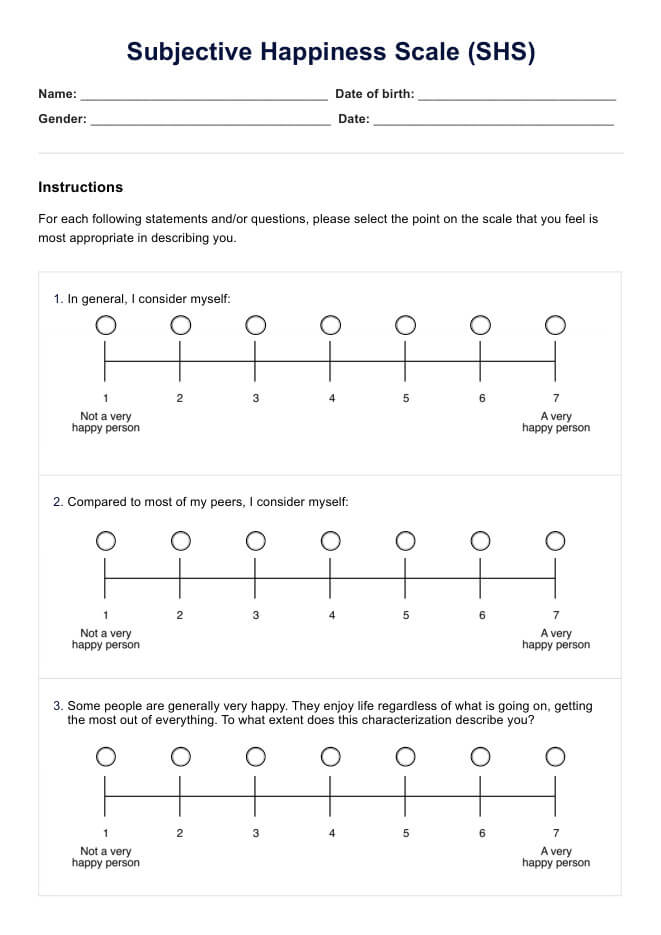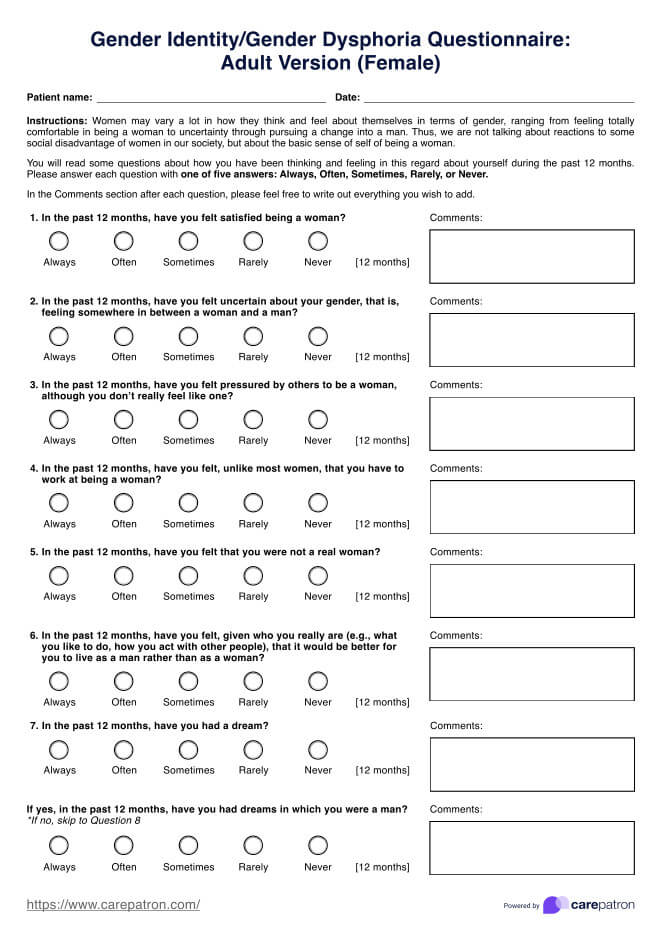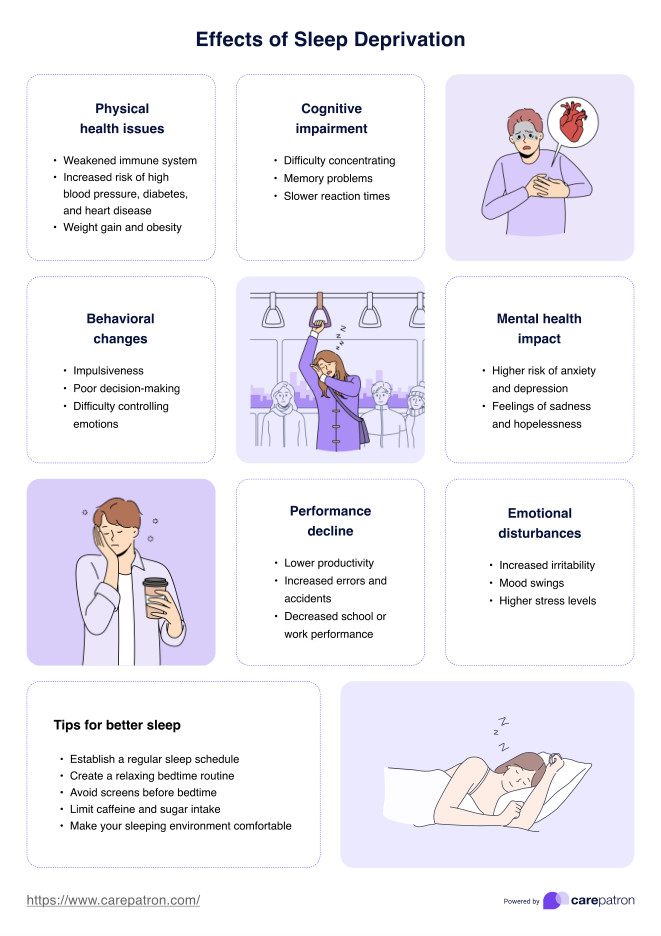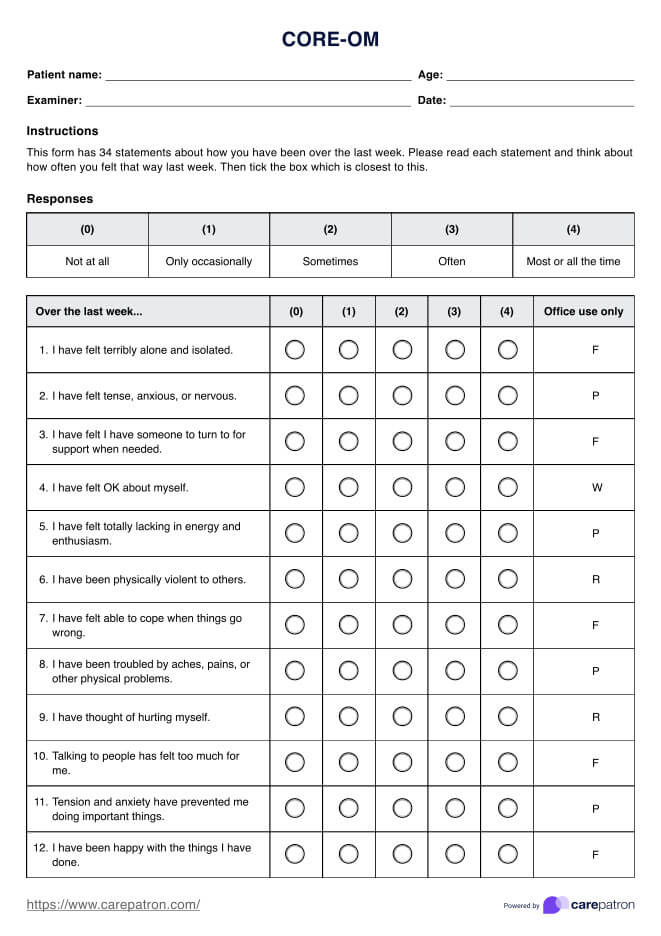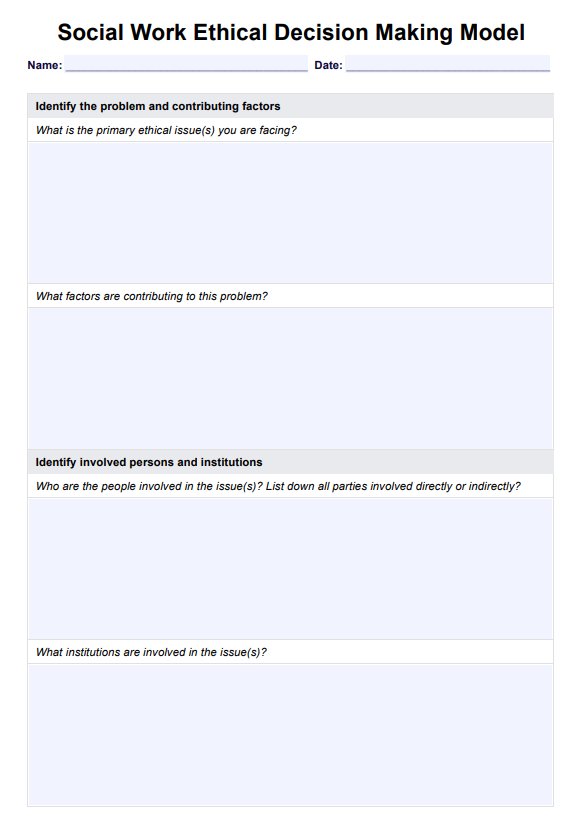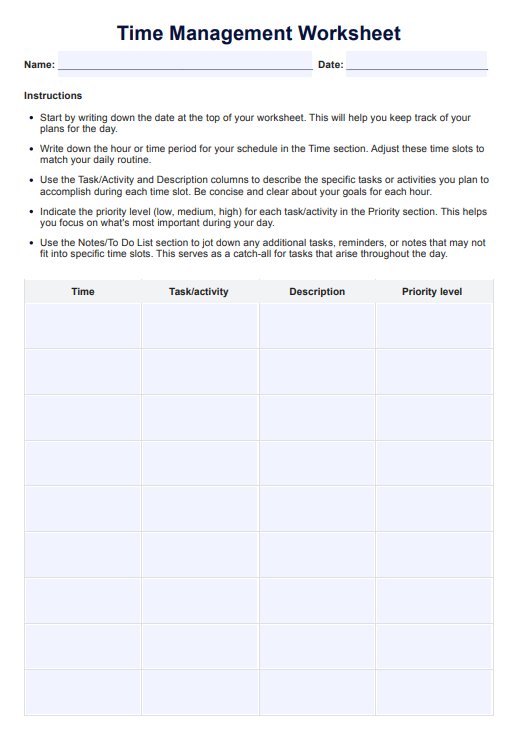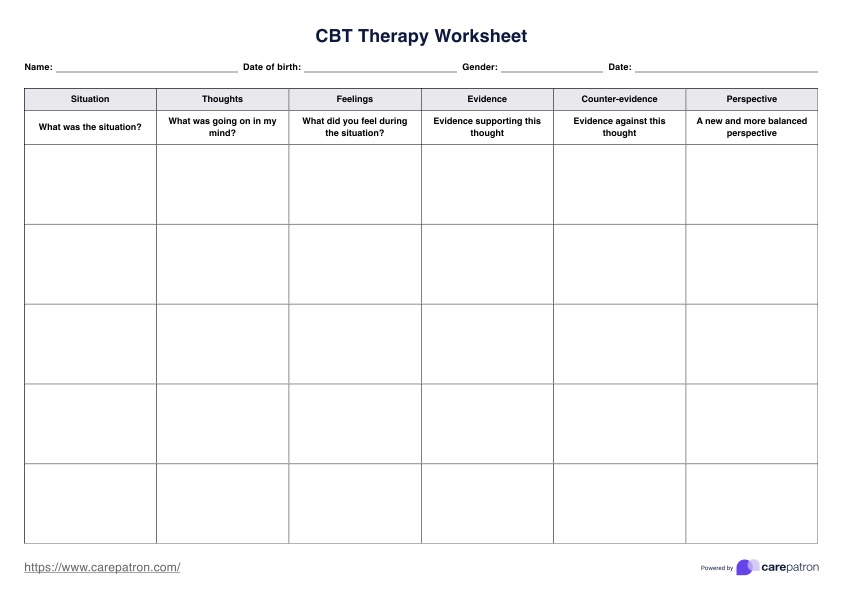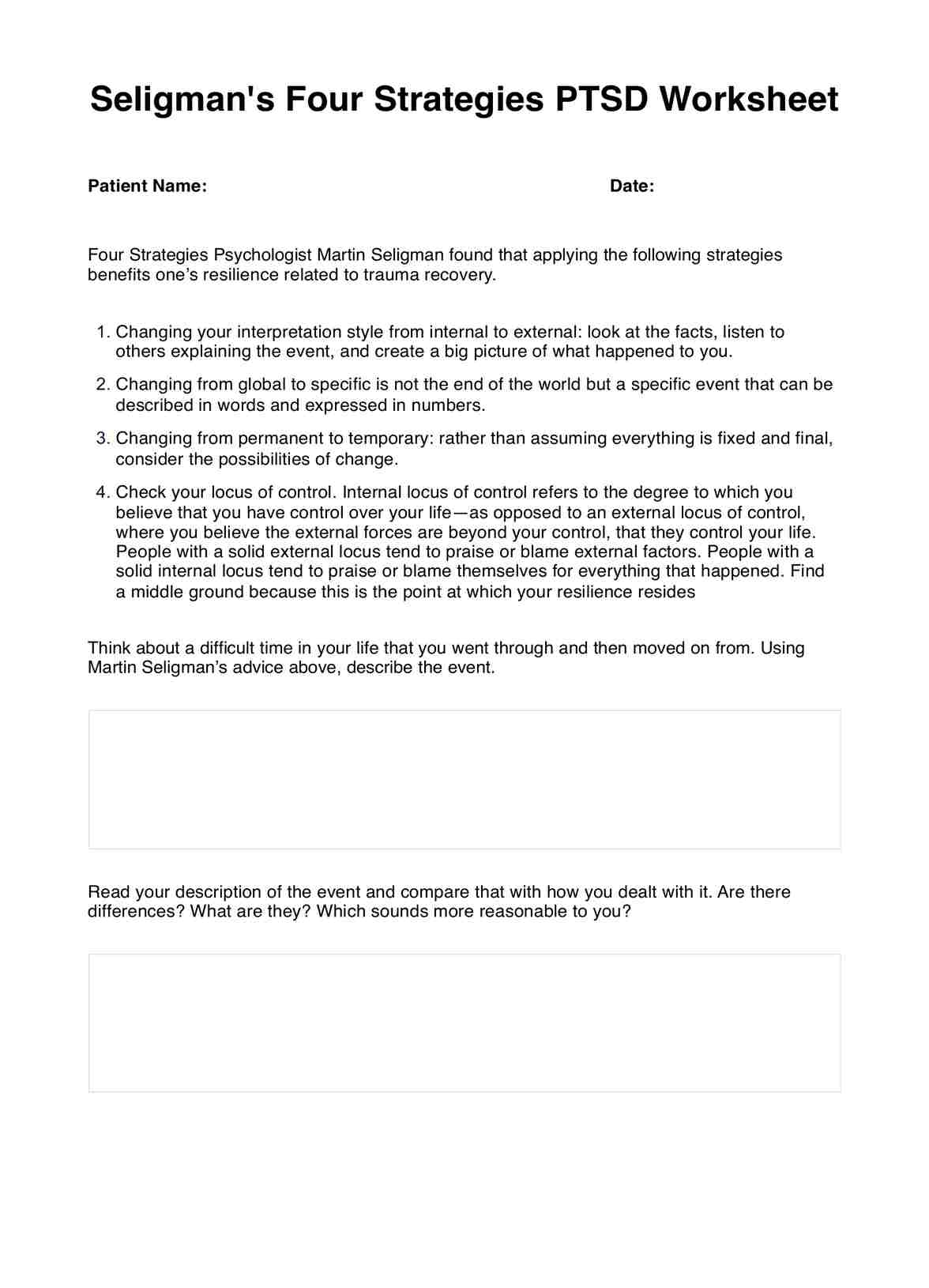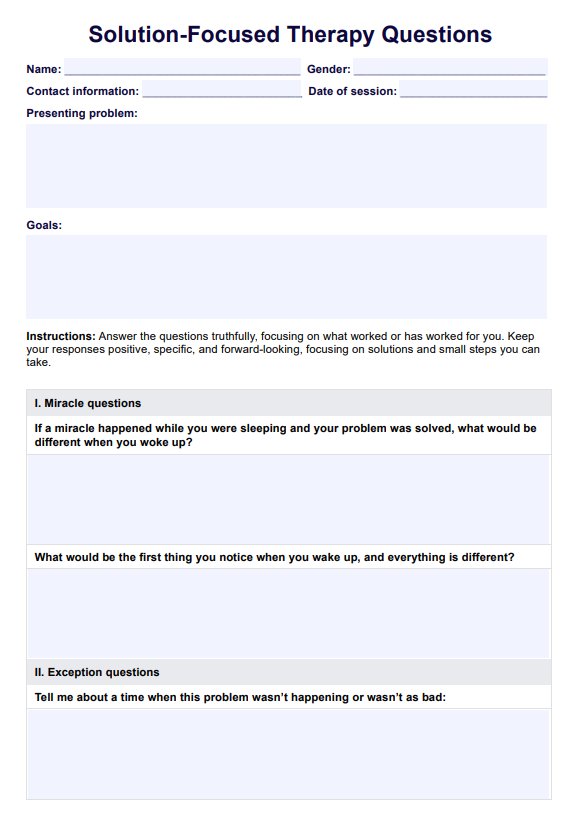Should Statements Worksheet
Learn to identify and reframe "should" statements with our Should Statements Worksheet, designed to help you foster more realistic and flexible thinking.


What are "should" statements?
"Should" statements are cognitive assertions that impose rigid expectations on ourselves or others, often embedding strict and moralistic standards into our thinking patterns. These statements can be synonymous with terms such as "musterbation," coined by psychologist Albert Ellis, "necessitous thinking," "self-commands," or "injunctions." Cognitive Behavioral Therapy (CBT) and Rational Emotive Behavior Therapy (REBT) recognize these as cognitive distortions.
Such statements typically contain an implicit demand on reality, oneself, or others, suggesting that there are precise ways things "must" be. This can lead to significant emotional distress when the expectations set by these "should" statements are not met.
Examples of "should" statements
"Should" statements can be negative thoughts that slip into daily thought without awareness, setting up unrealistic and sometimes unachievable expectations. Many people have had them—take a look:
- "I should always be successful."
- "People should treat me fairly."
- "I must do well, or I am a failure."
- "I should never feel tired at work."
- "I shouldn't complain about small things."
- "I should lose weight because I still look fat."
These statements can reinforce negative thought patterns by creating a gap between reality and expectations, often leading to disappointment, frustration, and even chronic discontent.
Why are "should" statements problematic?
"Should" statements are problematic because they tend to demand that reality conforms to an often unattainable ideal. This can create a significant emotional burden, as the persistence of these thoughts can lead to stress and emotional disorders like anxiety or depression. They often exacerbate feelings of guilt and shame when individuals or circumstances do not meet the rigid standards set by these statements.
Individuals can reduce emotional distress and promote a healthier, more adaptive mindset by challenging and reformulating "should" statements into more flexible and forgiving thoughts. This reevaluation is central to the therapeutic processes in CBT and REBT, aiming to transform these cognitive distortions into thoughts that support well-being and personal growth.
Should Statements Worksheet Template
Should Statements Worksheet Example
What is a Should Statements Worksheet?
A Should Statements Worksheet is a cognitive restructuring tool used primarily in cognitive behavioral therapy (CBT) to help individuals identify, challenge, and modify maladaptive beliefs that are often expressed as "should" statements. These worksheets are designed based on the psychological principles that underpin CBT, particularly the emphasis on identifying distorted thinking patterns that lead to emotional and behavioral issues.
What to expect when engaging with this worksheet
Carepatron's Should Statements Worksheet specifically facilitates a structured approach to cognitive therapy. It allows patients to pinpoint specific situations where "should" statements arise and encourages them to reflect on the impacts of these thoughts. The worksheet guides users through the process of rephrasing these "should" statements into more flexible and realistic thoughts, which can reduce anxiety and improve overall mental health.
The layout includes sections where individuals can list the situations that trigger their "should" statements, describe these statements, and then work on articulating more adaptive thoughts. This method helps break down the automatic thought process that contributes to stress and emotional distress, providing a clear path for developing healthier thinking habits.
By engaging with this worksheet, individuals learn to systematically challenge the often-subconscious rules they've set for themselves and others, which are usually unrealistic and unattainable. This practice not only helps in alleviating symptoms of anxiety and depression but also aids in cultivating a more compassionate attitude towards oneself and others, thereby improving overall emotional resilience and well-being.
How to use our Should Statements Worksheet template
Implementing the Should Statements Worksheet effectively can significantly enhance the therapeutic process by providing clients with a tangible tool to address cognitive distortions, specifically "should" statements. Here’s a step-by-step guide for mental health professionals on how to utilize this worksheet in your practice:
Step 1: Access this template
For healthcare professionals, the first step is to obtain the Should Statements Worksheet template. You can download it from Carepatron’s resources section or directly access it through our online platform. Once you have the template, you can provide it to your patients in either digital format through our patient portal or as a printed copy during in-person sessions.
Step 2: Explain the template
Before your patients begin to fill out the worksheet, it's crucial to explain its purpose and how it is used. Discuss the impact of "should" statements on mental health and the importance of identifying and modifying these thoughts. Ensure your patients understand each part of the worksheet—the sections for listing triggering situations, identifying negative "should" statements, and rewriting them into more realistic and flexible thoughts.
Step 3: Guide the patient through the worksheet
Walk your patients through each section of the worksheet. Encourage them to think about recent instances where they noticed themselves using "should" statements and to document these situations in the worksheet. Help them articulate these thoughts in the provided spaces and then work with them to develop more adaptive thoughts.
Step 4: Provide additional support
After the patient completes the worksheet, review their entries together. This review is an opportunity to provide feedback and deepen the discussion about how "should" statements affect their feelings and behaviors. Offer guidance on how to apply the new, more flexible thoughts in real-life situations, which can help prevent the recurrence of unhelpful thinking patterns.
Step 5: Reflect on the outcome
Encourage your patients to reflect on the process of using the worksheet and discuss any changes they notice in their thought patterns or emotional responses. Revisiting the worksheet in future sessions can help reinforce the new skills and ensure that the patient is applying them effectively.
By guiding patients through the use of the Should Statements Worksheet, mental health professionals can facilitate meaningful cognitive changes that contribute to improved mental health and well-being. This structured approach not only aids in therapy but also empowers patients to become active participants in their own recovery process.
Benefits of using this worksheet
Using the Should Statements Worksheet offers several advantages that can significantly aid in cognitive restructuring and enhance mental well-being. Here are some of the key benefits:
Enhances self-awareness
The worksheet encourages individuals to become more aware of their automatic thoughts, particularly those that are unhelpfully framed as imperatives. Recognizing these patterns is the first step toward changing them, which can lead to more adaptive and less stressful thinking habits.
Promotes cognitive flexibility
By challenging and reframing rigid "should" statements into more flexible thoughts, users learn to see situations from multiple perspectives. This flexibility can decrease anxiety and frustration, making it easier to adapt to changing circumstances and reduce emotional distress.
Facilitates behavioral change
As individuals work through the worksheet and begin to alter their thought patterns, these new, more adaptive thoughts can lead to changes in behavior. Over time, this can result in improved coping strategies, better problem-solving skills, and more effective interpersonal interactions.
These benefits demonstrate how the Should Statements Worksheet can be a valuable tool in therapy, especially for those dealing with anxiety, depression, and other conditions where cognitive distortions are common. By integrating this worksheet into their practice, mental health professionals can provide their patients with a practical and effective method for improving their mental health.
Using a cognitive distortions worksheet can help identify and challenge irrational thoughts affecting mental well-being. This tool is valuable for exploring common cognitive errors like overgeneralization and catastrophizing.
Skills that can deal with "should" statements
Developing specific skills can greatly help individuals manage and reframe "should" statements, reducing the stress and negative thinking patterns they often cause. Here are some effective strategies:
- Mindfulness: By practicing mindfulness, individuals can learn to observe their thoughts without judgment, recognizing "should" statements as they arise and choosing not to engage with them automatically.
- Cognitive reframing: This involves altering negative or restrictive thoughts into more positive, flexible, or realistic ones. It's particularly useful for turning "should" statements into preferences or desires, which are less likely to lead to disappointment or guilt.
- Assertiveness training: Learning to communicate desires and emotions assertively, rather than passively or aggressively, can help individuals express what they really want or need without imposing strict expectations on themselves or others.
- Problem-solving: Developing problem-solving skills allows individuals to focus on finding practical solutions rather than ruminating on how things "should" be, which can lead to more effective and satisfying outcomes.
- Emotional regulation techniques: These techniques, such as deep breathing, relaxation exercises, and guided imagery, help manage the emotional impact of rigid "should" statements, allowing for clearer thinking and better decision-making.
By mastering these skills, individuals can better handle "should" statements, leading to improved mental health and well-being.
Commonly asked questions
A should statement is a cognitive distortion where individuals impose a negative thinking pattern of rigid and often unrealistic expectations on themselves or others, typically leading to feelings of guilt or failure when these expectations are not met.
To manage should statements, identify and challenge their validity, reframe them into more flexible and realistic thoughts, and practice mindfulness to reduce their impact on your emotional well-being.
Should statements are also known as "mustrubation," "necessitous thinking," "self-commands," and "injunctions," reflecting their demanding and often counterproductive nature.


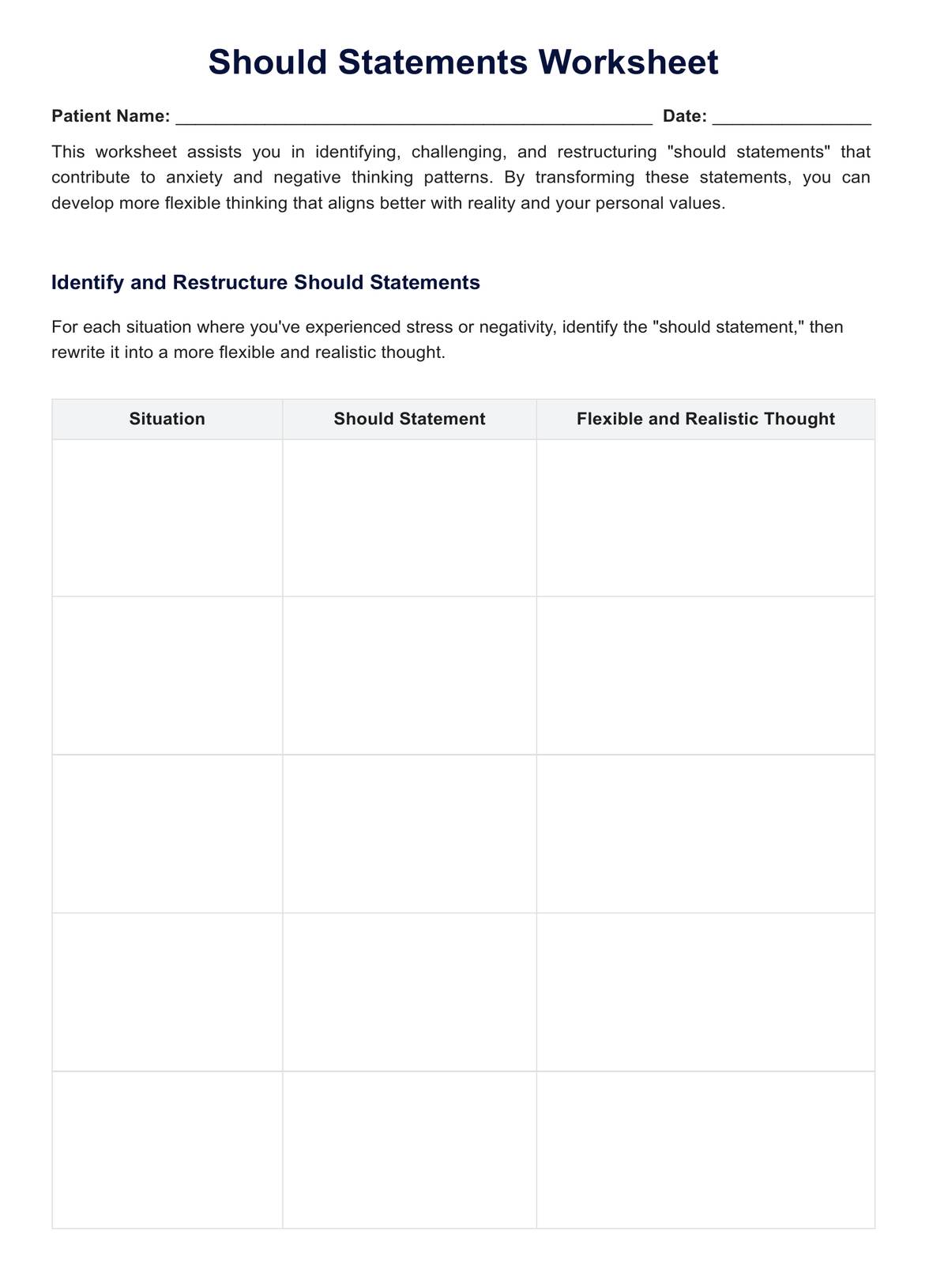
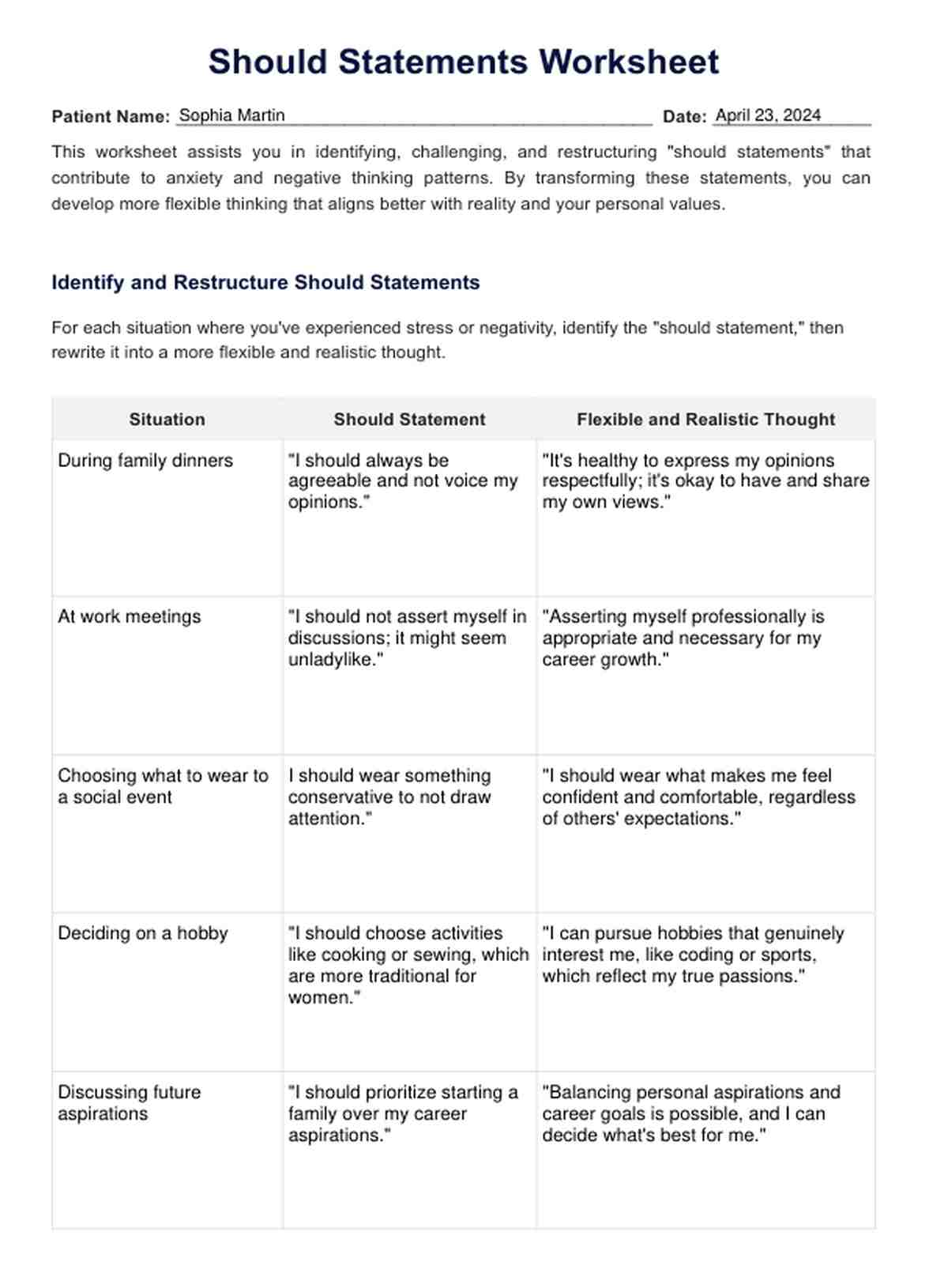


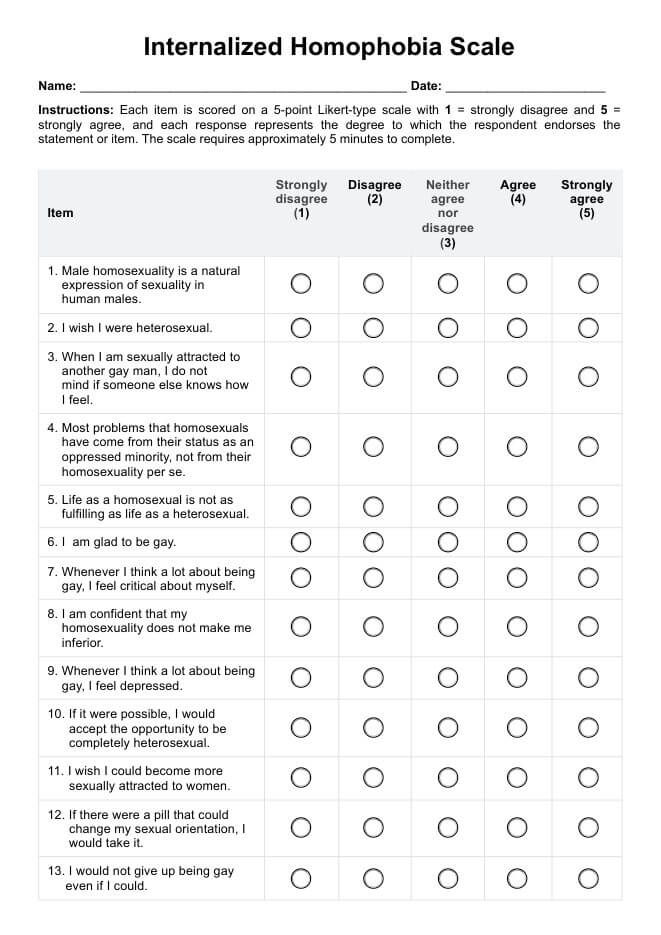
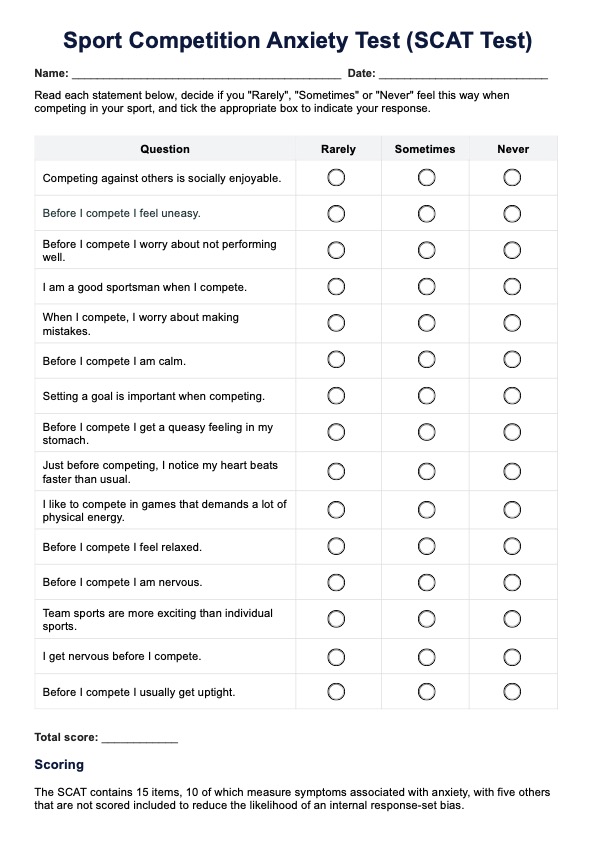
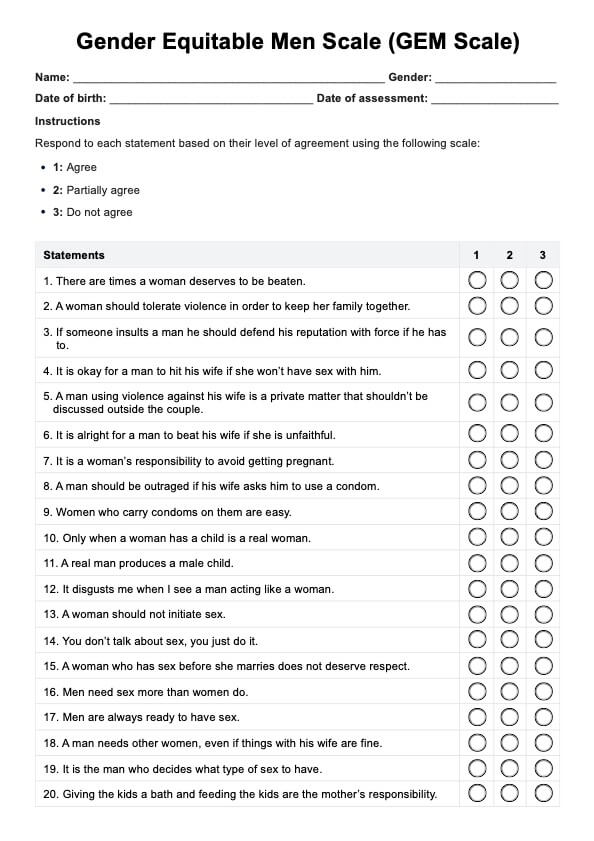










-template.jpg)












































































